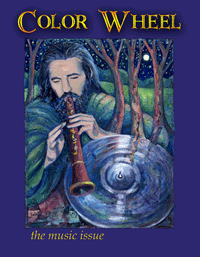Rick Whaley

Rick Whaley has blended parenting, political activism and writing, and a career in education for more than three decades. He has been a day care teacher, parent, family day care provider, foster parent, and home-schooler. In the Rust Belt layoffs of the early 1980s, Whaley organized in Milwaukee around disinvestment and forced overtime, as well as doing neighborhood organizing and safety patrols. He was an organizer and activist for the boat-landing Witness for Non-Violence in northern Wisconsin and co-authored the award-winning book, Walleye Warriors: The Chippewa Treaty Rights Story. He was spokesperson for Milwaukee Area Greens for most of the 1990s.
Mr. Whaley currently serves on the steering committee for the Sacred Sites Run 2006 and 2007. He grandparents now, works with his block club, and makes a living as a paraprofessional at a public Montessori school in Milwaukee.
How Green Is the Green Party? (Beech River Books, 2007) describes how issue-oriented politics have a negative affect on the process of getting a party to come together behind a platform. When individuals or groups come to meetings focused on their own agendas, the result is that power-plays can take place that encourage factions and extreme positions, but the author proposes positive and active approaches to encourage consensus and inclusion. He gives vivid and inspiring examples of facilitation methods that negotiate around the stronger, more demanding voices so that wiser and more reflective voices can also be heard. Whaley advocates for decentralism in the Green party and for respect for core values as a way of establishing sustainable and sensible positions that will bring more people into the tent rather than pushing them out. Progressive consciousness should also respect community cultural schooling, the Family as an institution, value-conservatives, and bio-regional and cultural traditionalism. Most of all, ecology and environmental justice should be maintained as the core value of the party, he argues, with care to preserve the diversity of opinion that surround that center, just as we value diversity in ecosystems. Whaley’s message is, in the end, one of hope, healing, courage and strength.
